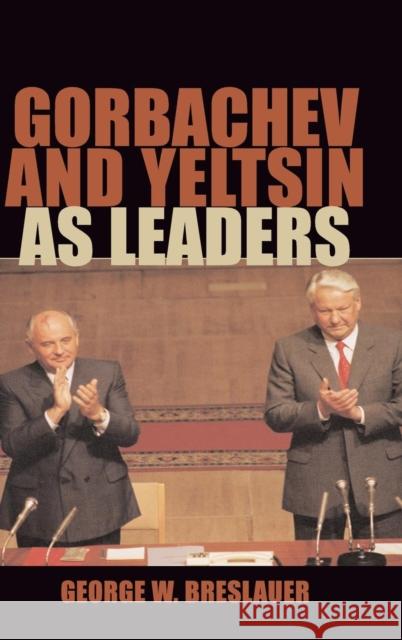Gorbachev and Yeltsin as Leaders » książka
Gorbachev and Yeltsin as Leaders
ISBN-13: 9780521814867 / Angielski / Twarda / 2002 / 348 str.
Gorbachev and Yeltsin as Leaders
ISBN-13: 9780521814867 / Angielski / Twarda / 2002 / 348 str.
(netto: 350,68 VAT: 5%)
Najniższa cena z 30 dni: 317,35
ok. 22 dni roboczych.
Darmowa dostawa!
Examining the strategies employed by Mikhail Gorbachev and Boris Yeltsin to build leadership authority, George Breslauer focuses on the power of ideas, as leaders use them to mobilize support and to craft an image as effective problem solvers, indispensable consensus builders, and symbols of national unity. Throughout the book, Breslauer compares Gorbachev and Yeltsin, and Khrushchev and Brezhnev, analyzing the changes in policy, the strategies, and the political dilemmas that are common to all four administrations. He addresses such questions as: Could Yeltsin have pursued a more beneficial path to a market economy, despite Western advisors and actions of the International Monetary Fund? For the chapters about Gorbachev, Breslauer was able to interview former members of the leader's politburo, including those who plotted Gorbachev's overthrow. Interested in how leaders make changes, Breslauer looks at how these leaders justified their actions and outflanked their opponents. Breslauer sheds new light on the end of Soviet communism and Russia's transition to a market economy. George W. Breslauer, is Dean of Social Sciences and Professor at the University of California, Berkeley. He has written and edited ten books about Soviet and post-Soviet politics and foreign policy, including Counterfactual Thought Experiments in World Politics (Princeton University Press, 1996) and Khrushchev and Brezhnev as Leaders (London: Allen and Unwin, 1982). In 1998, he was awarded the Chancellor's Professorship for combining excellence in research, teaching, and university service and was most recently appointed Dean of Social Sciences at Berkeley.











